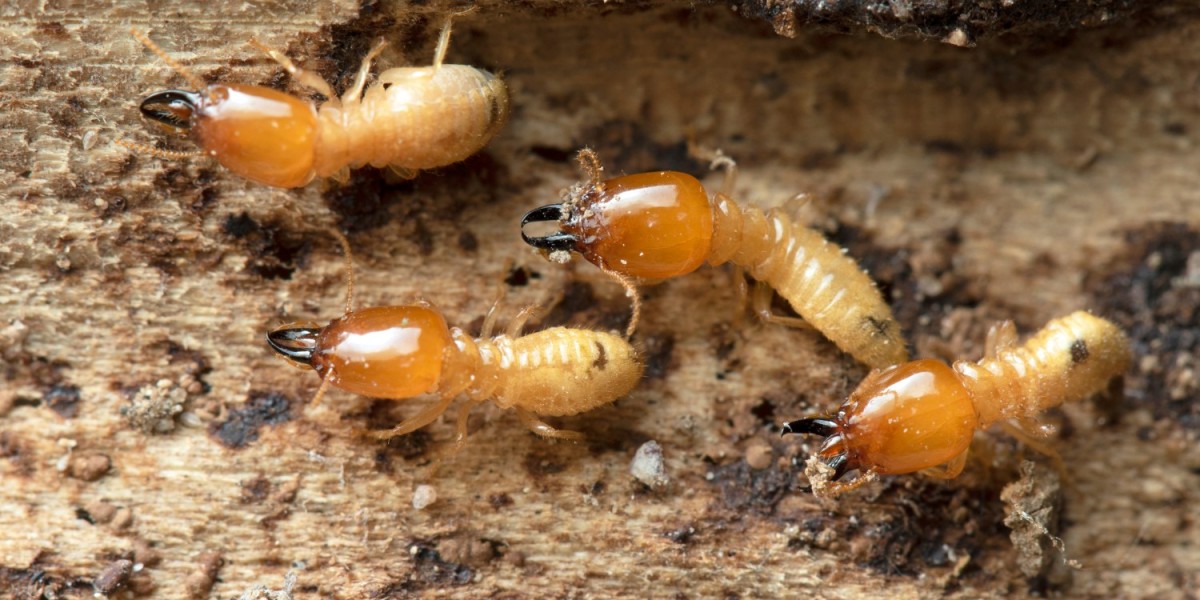Termites are a homeowner’s silent nightmare. These small but destructive pests can cause significant structural damage before you even realize they’re there. Once discovered, immediate action is essential—but even after professional treatment, many homeowners are left wondering how long the protection will last.
The longevity of termite treatment depends on several factors, including the type of treatment used, the property’s construction, environmental conditions, and the quality of maintenance afterward. In this article, we’ll break down how long different termite treatments typically last, what affects their lifespan, and how regular inspections can help keep your home safe for years to come.
Understanding Termite Treatments
Termite treatments are designed to either eliminate active infestations or create barriers that prevent termites from entering your home. Broadly speaking, there are two main types of termite treatments: liquid soil treatments and baiting systems.
Each has its own advantages and lifespan, and the effectiveness of both depends on how well they are applied and maintained.
Liquid Termite Treatments
Liquid treatments involve applying a specialized termiticide around the perimeter of a building, forming a protective barrier in the soil. When termites attempt to cross this treated zone, they are either killed upon contact or carry the termiticide back to their colony, spreading its effects.
How long it lasts:
A professionally applied liquid termite treatment can last anywhere from 5 to 10 years, depending on the product used, soil type, and local conditions. Premium non-repellent termiticides, such as those using fipronil or imidacloprid, tend to offer the longest-lasting protection.
However, natural factors like heavy rainfall, soil erosion, or landscaping changes can reduce the effectiveness of the barrier over time. This is why regular inspections are crucial to ensure the treatment remains intact.
Termite Baiting Systems
Baiting systems take a different approach. Instead of forming a chemical barrier, they use strategically placed bait stations filled with cellulose material laced with a slow-acting ingredient. Worker termites feed on the bait and share it with the colony, leading to its gradual elimination.
How long it lasts:
Unlike liquid treatments, baiting systems are ongoing treatments rather than one-time applications. The stations themselves can last indefinitely, but the bait inside must be checked and replenished regularly—typically every 3 to 6 months.
When properly maintained, baiting systems provide continuous protection. They’re an excellent choice for homeowners who prefer an eco-friendly, low-toxicity solution with long-term monitoring.
Factors That Affect Treatment Longevity
Even the best termite treatment won’t last forever. Several environmental and situational factors can influence how long your protection remains effective.
1. Soil Type and Condition
Soil composition plays a major role in the lifespan of liquid treatments. Sandy or loose soil allows water and chemicals to move quickly, which can shorten the barrier’s life. Clay or compact soil, on the other hand, tends to hold termiticides longer, extending their effectiveness.
2. Weather and Climate
Regions with heavy rainfall, humidity, and flooding—like coastal Queensland—can cause termiticides to leach from the soil more quickly. High moisture also encourages termite activity, increasing the need for consistent monitoring and possible re-treatment sooner than in drier areas.
3. Property Design and Construction
Homes built on concrete slabs or with poor drainage systems may be more vulnerable to termite entry points. Cracks, gaps in foundations, or untreated wooden structures provide opportunities for termites to bypass protective barriers, reducing treatment longevity.
4. Landscaping and Soil Disruption
Digging, gardening, or adding new irrigation systems can disturb treated soil, breaking the chemical barrier. For this reason, it’s important to inform pest control professionals before making major landscaping changes so they can reapply treatment if needed.
5. Quality of the Application
Not all treatments are equal. The experience and precision of your pest control provider directly influence how well the treatment performs over time. Professional technicians ensure consistent coverage, proper soil depth, and correct product dosage—all critical factors in achieving long-lasting results.
Signs That Termite Protection May Be Fading
Even after treatment, ongoing vigilance is necessary. Termite activity may resurface if the barrier weakens or bait stations go unchecked. Watch for these signs that your protection might be losing effectiveness:
Mud tubes appearing on walls, foundations, or garden structures
Hollow or blistered timber that sounds papery when tapped
Piles of discarded wings near windows or doors
Tight-fitting doors and windows caused by structural damage
Presence of live termites in soil, wood, or bait stations
If you notice any of these warning signs, contact a professional immediately for an assessment. Scheduling a termite inspection Gold Coast service ensures any vulnerabilities or re-infestations are detected early before they escalate.
How to Extend the Lifespan of Your Termite Treatment
While termite treatments have a natural lifespan, there are several ways to maximize their effectiveness and extend protection.
Schedule Regular Inspections
Professional termite inspections should be carried out at least once a year, or every six months in high-risk areas. Regular checks help identify breaches, weakened barriers, or new termite activity before it causes significant damage.
Maintain the Perimeter
Avoid disturbing the soil around your home’s foundation, and ensure that garden beds, mulch, or woodpiles are kept at least half a metre away from the treated zone. This prevents termites from finding alternative pathways into your home.
Manage Moisture
Moisture attracts termites. Fix leaking pipes, improve ventilation in crawl spaces, and ensure your property drains effectively after rain. Reducing moisture makes your home less appealing to termites and helps treatments remain effective.
Combine Treatments When Appropriate
In many cases, combining baiting systems with a liquid barrier provides the best long-term protection. The liquid barrier offers immediate defense, while the baiting system ensures continuous monitoring and colony elimination.
Work with Experienced Professionals
Hiring a licensed pest control expert guarantees that your treatment is properly applied and maintained. Professionals use the latest technology, quality products, and proven techniques to ensure your home remains protected.
When to Re-Treat Your Property
Even with diligent maintenance, all termite treatments eventually lose effectiveness. As a general guideline:
Liquid treatments: Reapplication is recommended every 5 to 10 years, depending on environmental conditions and the product used.
Baiting systems: Should be inspected regularly and replenished as needed to maintain continuous protection.
If you’re unsure about the condition of your existing termite barrier, a professional assessment can provide clarity. Scheduling a termite treatment Gold Coast service ensures your property is evaluated by local experts familiar with Queensland’s unique termite species and climate challenges.
Final Thoughts
Termite treatments provide vital protection for your home, but they are not permanent solutions. Their lifespan depends on several variables, including the method used, the environment, and how well the treatment is maintained.
Liquid treatments can last up to a decade, while baiting systems offer ongoing protection when regularly serviced. However, the key to lasting termite defense lies in proactive care—routine inspections, proper maintenance, and expert advice.
By partnering with experienced pest control professionals, homeowners can enjoy peace of mind knowing their property is protected from one of nature’s most destructive pests. Consistent vigilance, combined with modern treatment technology, ensures that your home remains safe, strong, and termite-free for years to come.







